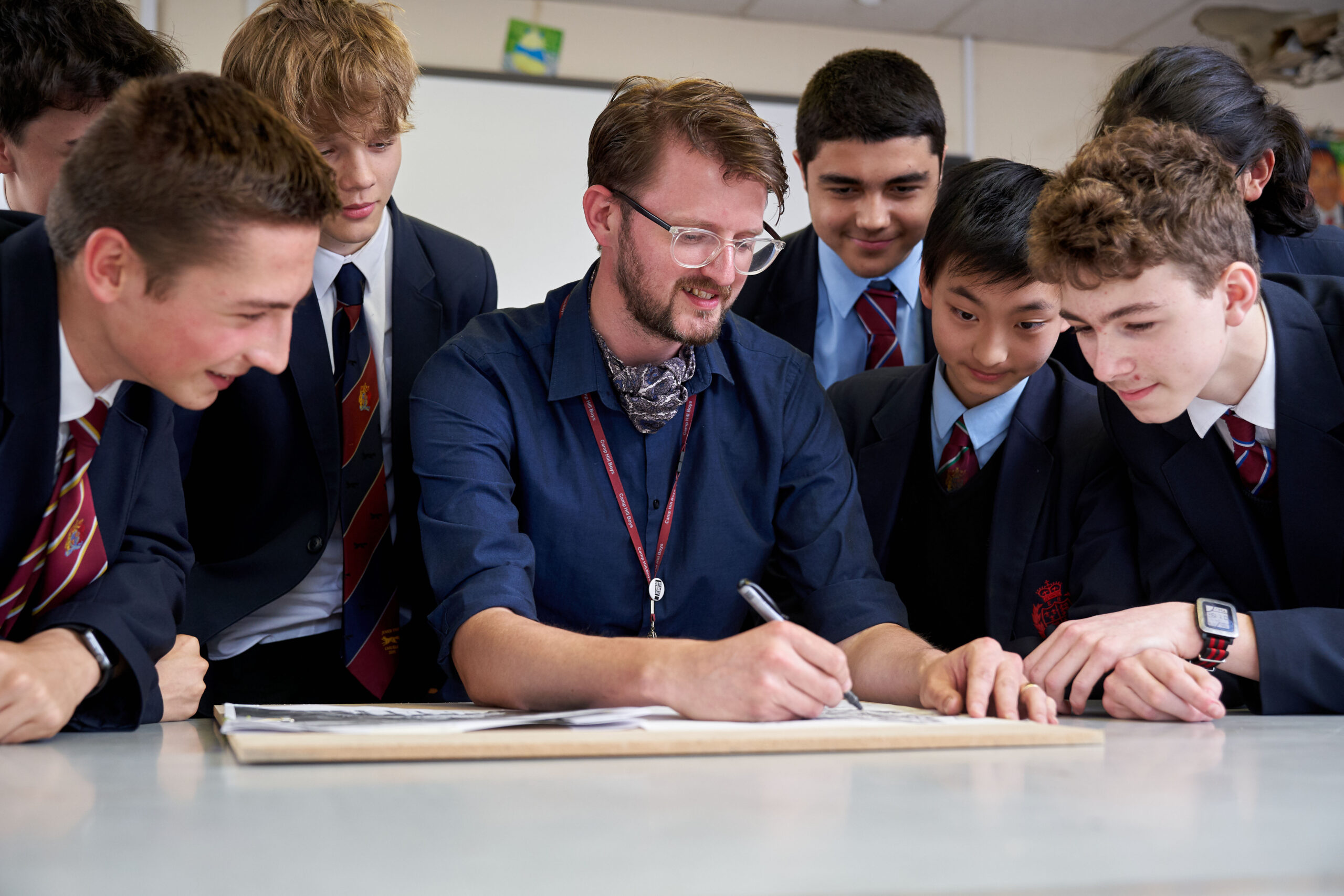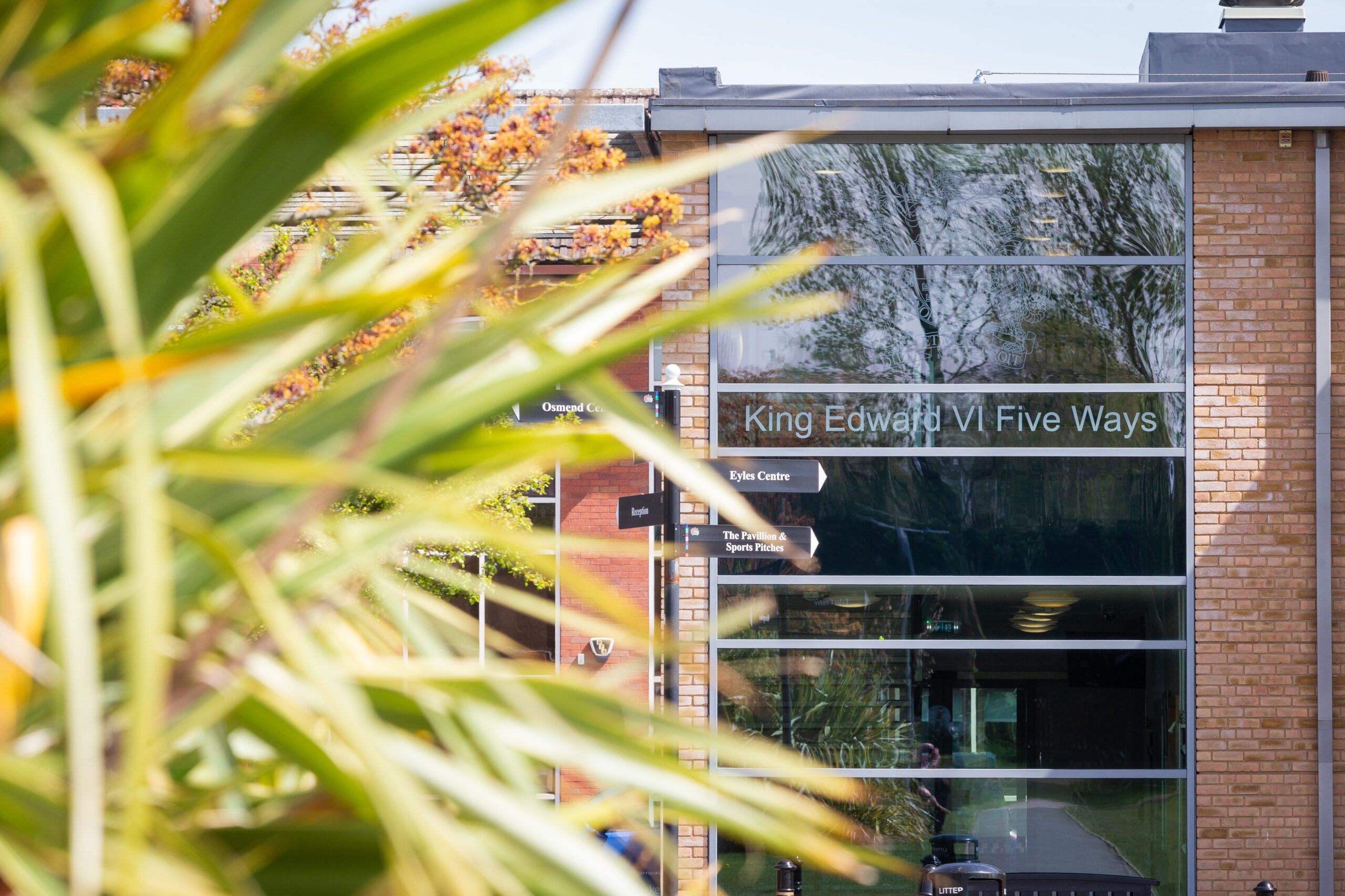Mental Health Awareness Week, 18th - 24th May 2020
The theme for Mental Health Awareness Week 2020 is the power and potential of kindness. Being kind – acting in a friendly, generous or considerate way – can strengthen relationships, develop community and deepen solidarity. Kindness benefits both the giver and the receiver and so its significance during these difficult times of the Coronavirus pandemic cannot be underestimated. Wisdom from every culture across history recognises that kindness is fundamental to the human experience, so let us visit the archives to uncover a long-forgotten tale of kindness.
The First World War is not generally remembered for acts of kindness. The King Edward’s School archives, however, tell a remarkable story of one teacher’s courage and kindness, transcending Anglo-German hostilities during the difficult years of the Great War.
Herr Rothe was appointed Language Master (French & German) at King Edward’s School in October 1881, having previously taught at King Edward VI Aston School. The records tell us that he was a sound, practical and thorough teacher, with “a deeper knowledge of old English language and literature than most men in the town.” (The Old Edwardians’ Gazette, Vol. XXX, No. 146, May 31st, 1933)
[caption id="attachment_8504" align="aligncenter" width="550"]
 Herr Rothe and staff of King Edward VI Aston School, 1889[/caption]
Herr Rothe and staff of King Edward VI Aston School, 1889[/caption]
On his retirement in June 1912, shortly before leaving England to return to Germany, Herr Rothe presented the school with a trophy for rugby-football competitions.
[caption id="attachment_8493" align="aligncenter" width="664"]
 KES Chronicle, Vol. XXVII, No. 195, October, 1912[/caption] [caption id="attachment_8494" align="aligncenter" width="454"]
KES Chronicle, Vol. XXVII, No. 195, October, 1912[/caption] [caption id="attachment_8494" align="aligncenter" width="454"] The Rothe Cup[/caption]
The Rothe Cup[/caption]
In a letter to the school, a year before the outbreak of war, Herr Rothe expressed his concern regarding potential hostilities:
[caption id="attachment_8495" align="aligncenter" width="635"]
 Kes Chronicle, Vol. XXVIII, No. 198, March, 1913[/caption]
Kes Chronicle, Vol. XXVIII, No. 198, March, 1913[/caption]
There was to be no ‘bloodless competition’ and our nations fought in the air, on the battlefield and at sea for four gruelling years with devastating loss of life.
There were no further letters to the school from Herr Rothe and no mention of him after the Armistice until, at an Old Edwardians’ dinner in January 1933, a guest speaker told the story of a former pupil who had been a prisoner of war in Heidelberg.
[caption id="attachment_8496" align="aligncenter" width="573"]
 Heidelberg PoW Camp during the First World War[/caption]
Heidelberg PoW Camp during the First World War[/caption]
The former pupil described his prison experience as “hell on earth” until things became more bearable with the unexpected arrival of “extra blankets and other little comforts.” The regular deliveries mystified the prisoner until one day the camp Commandant asked:
“Were you at King Edward’s School, Birmingham?” On replying “Yes,” the Commandant continued, “Well, there’s a man in this town called Rothe, who has been inquiring and, finding that you had been there, has arranged for the extras you have been getting.”
Interestingly, the prisoner had never been taught by Rothe, but “he came from the old school and that was enough.” Herr Rothe’s gesture was not just kind, it was courageous. By delivering these parcels of comforts to enemy officers, he put himself at great personal risk.
Word that the story had been recounted at the Old Edwardians’ Dinner reached Herr Rothe, by now living in Italy, who wrote to the school magazine:
[caption id="attachment_8497" align="aligncenter" width="581"]
 The Old Edwardians’ Gazette, Vol. XXX, No. 146, May 31st, 1933[/caption]
The Old Edwardians’ Gazette, Vol. XXX, No. 146, May 31st, 1933[/caption]
Herr Rothe died on 7th March 1933, just days after writing this letter and it is touching to know that the last weeks of his life were cheered by the knowledge that his remarkable acts of kindness had not been forgotten by the pupils and staff of his old school.
[caption id="attachment_8498" align="aligncenter" width="544"]
 Herr Roth and staff of King Edward’s School, 1898[/caption]
Herr Roth and staff of King Edward’s School, 1898[/caption] 








